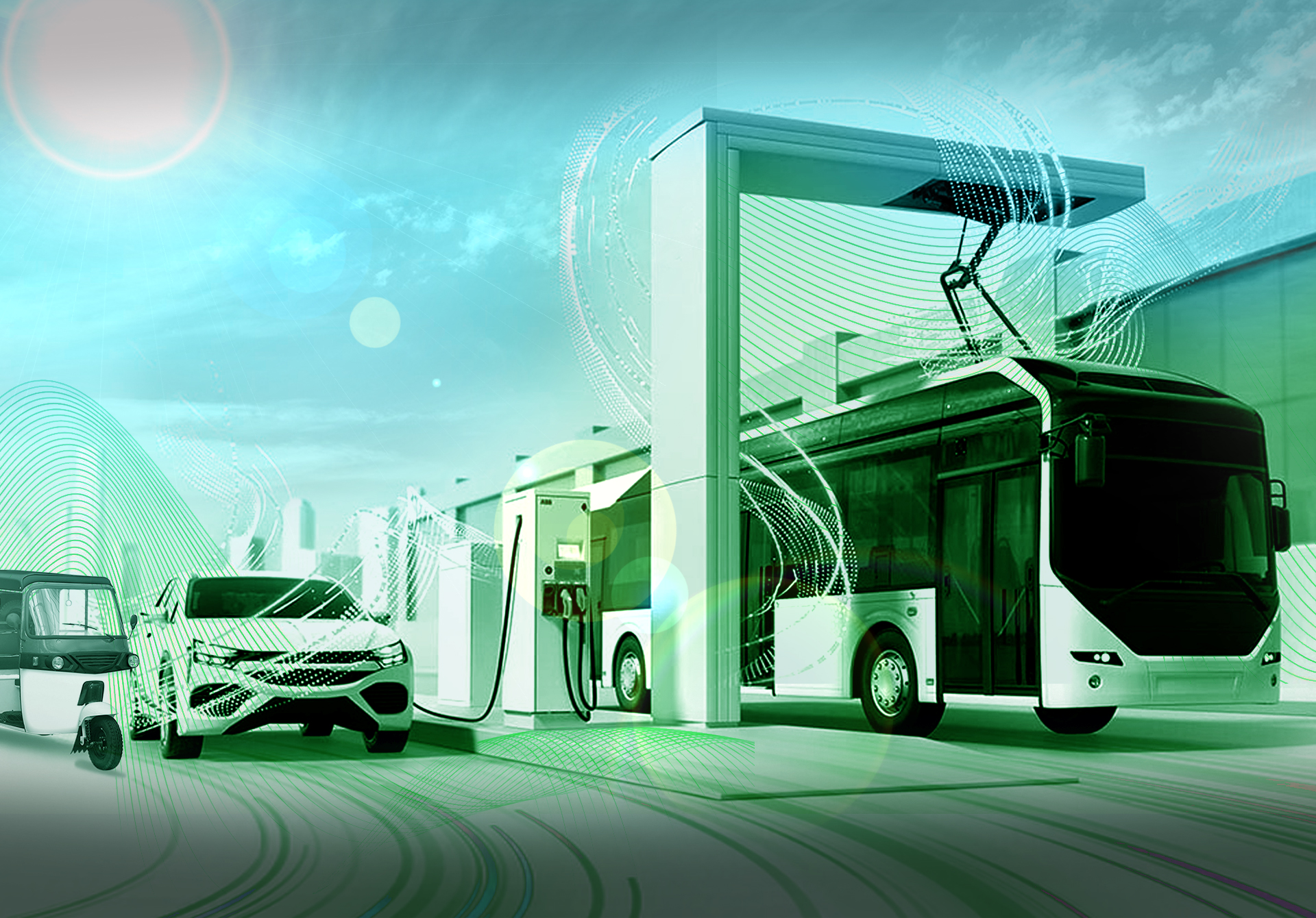In recent years, there has been a remarkable transformation in the transportation industry, driven by the adoption of electric vehicles (EVs) and a shift toward sustainable, eco-friendly mobility solutions. At the heart of this revolution lies a powerful and indispensable technology: lithium-ion batteries. In this article, we’ll explore how lithium-ion batteries are powering the e-mobility revolution, reshaping the transportation landscape, and paving the way for a greener future.
The Rise of Electric Mobility
The rise of electric mobility is a response to several global challenges, including environmental concerns, urban congestion, and energy efficiency. Electric vehicles offer a compelling solution to these issues. Unlike traditional internal combustion engine (ICE) vehicles, EVs are powered by electricity stored in high-performance lithium-ion batteries. Here’s why this technology is central to the e-mobility revolution:
Environmental Sustainability:
Reduced Emissions: EVs produce zero tailpipe emissions, significantly reducing greenhouse gas emissions and air pollution. This is crucial in the fight against climate change and improving air quality in urban areas.
Resource Efficiency: Lithium-ion batteries are more energy-efficient and environmentally friendly compared to the manufacturing and operation of conventional gasoline or diesel engines.
Energy Efficiency:
High Efficiency: EVs are more energy-efficient than their ICE counterparts. Electric motors convert a higher percentage of the energy from the grid to power at the wheels.
Regenerative Braking: EVs can capture and store energy during braking, further improving efficiency and extending the vehicle’s range.
Cost Savings:
Lower Operating Costs: Electric vehicles have fewer moving parts, resulting in lower maintenance and operational costs over the vehicle’s lifetime.
Reduced Fuel Expenses: Charging an EV is generally cheaper than fueling a traditional vehicle, providing significant long-term savings for owners.
Technological Advancements:
Battery Innovations: Ongoing research and development in battery technology are continuously improving the energy density and range of lithium-ion batteries.
Charging Infrastructure: The growth of charging networks makes EVs more practical and convenient for daily use.
Lithium-Ion Batteries: The Powerhouse Behind EVs
Lithium-ion batteries have become the preferred energy storage solution for EVs due to their unique characteristics:
High Energy Density: Lithium-ion batteries offer a high energy-to-weight ratio, providing ample energy storage while keeping the battery pack’s weight relatively low. This results in longer driving ranges for EVs.
Quick Charging: Modern lithium-ion batteries can be charged rapidly compared to other battery types. Fast-charging stations can replenish a significant portion of the battery’s capacity in a short time, enhancing the practicality of EVs.
Durability: Lithium-ion batteries are designed to withstand numerous charge and discharge cycles, making them a reliable choice for the demanding requirements of EVs.
Compact Size: Lithium-ion battery packs are relatively compact, allowing automakers to integrate them seamlessly into various vehicle designs, including traditional sedans, SUVs, and electric bicycles.
Low Self-Discharge: These batteries have a low self-discharge rate, which means they can hold their charge for extended periods when not in use.
Challenges and Innovations
While lithium-ion batteries have catalyzed the e-mobility revolution, they also face some challenges:
Range Anxiety: Concerns about the limited range of EVs have deterred some consumers from making the switch. Battery technology advancements aim to address this issue by extending the range of EVs.
Charging Infrastructure: While charging networks are growing, further development is needed to ensure widespread accessibility, especially in rural areas.
Resource Supply: Lithium-ion batteries rely on critical minerals like lithium, cobalt, and nickel. Sustainable sourcing and recycling of these resources are essential to minimize environmental impacts.
Environmental Concerns: Battery production and disposal can have environmental consequences. Recycling and responsible disposal methods are being developed to address these concerns.
Price: While the cost of batteries has been decreasing, it remains a significant portion of an EV’s overall price. Continued cost reductions are necessary for broader EV adoption.
To overcome these challenges, ongoing research and development efforts are focusing on improving battery technology, enhancing recycling processes, and developing alternative battery chemistries with even higher energy densities and faster charging capabilities.
The Future of E-Mobility
The e-mobility revolution is still in its early stages, and its potential impact is vast. Here’s a glimpse of what the future may hold:
Increased Adoption: As technology improves and charging infrastructure expands, more consumers and businesses are expected to adopt electric vehicles.
Diverse Vehicle Offerings: Electric mobility is not limited to cars. Electric bicycles, scooters, buses, and even trucks are becoming electrified, contributing to reduced emissions and urban congestion.
Energy Storage Solutions: Beyond transportation, lithium-ion batteries will play a pivotal role in storing renewable energy from sources like solar and wind, making our energy grids more sustainable and resilient.
Autonomous Driving: Electric vehicles are poised to play a significant role in autonomous driving, offering efficient and environmentally friendly transportation options.
Environmental Benefits: The widespread adoption of electric vehicles will contribute significantly to reducing greenhouse gas emissions and air pollution, helping combat climate change and improve public health.
Conclusion
The e-mobility revolution, powered by lithium-ion batteries, is redefining the way we move people and goods. Electric vehicles offer a cleaner, more sustainable transportation alternative with numerous benefits for the environment, consumers, and businesses. As technology continues to advance and the adoption of electric mobility grows, we can look forward to a future where our transportation systems are not only more efficient and cost-effective but also significantly kinder to the planet. With ongoing research and innovation, the e-mobility revolution will continue to accelerate, driving us toward a greener and more sustainable future. We at Evolute Cleqntech Solutions are fully capable to power EVs be it E-Bike, E-Bicycle, E-Rickshaws, Golf Carts, Drones etc. We are an ISO 9001:2015 Certified Company with a State-Of-The-Art-Manufacturing Facility spanning around 50,000 sq ft in area. Join us today to techpower the world





